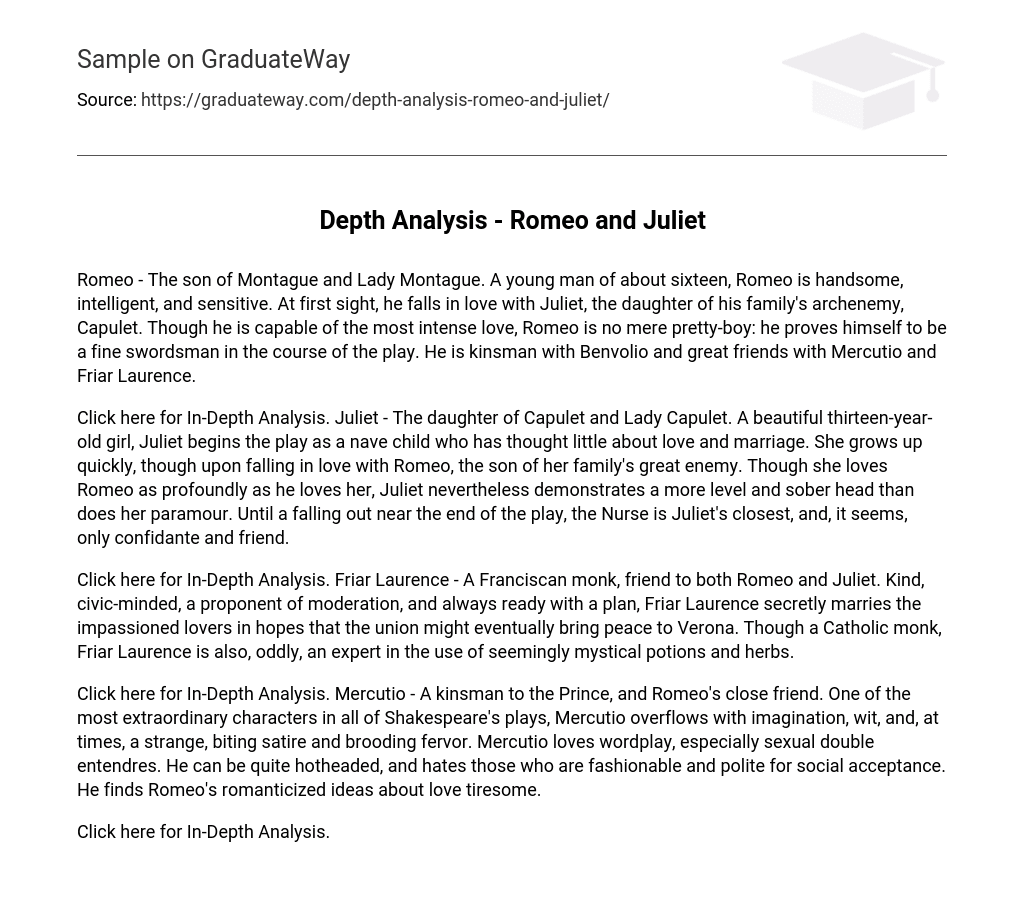Romeo, the son of Montague and Lady Montague, is a young man of approximately sixteen who possesses physical attractiveness, intelligence, and sensitivity. He becomes enamored with Juliet, the daughter of his family’s sworn enemy, Capulet, immediately upon seeing her for the first time. Although he is capable of experiencing deep affection, Romeo is not merely a superficially good-looking individual; he showcases his prowess in swordsmanship throughout the play. Additionally, he has familial ties to Benvolio and maintains strong friendships with Mercutio and Friar Laurence.
For a detailed analysis, click here. Juliet is portrayed as a stunning thirteen-year-old girl who initially lacks knowledge about love and marriage. However, her perception quickly matures upon falling in love with Romeo, the son of her family’s enemy. Despite their deep love, Juliet often displays a more rational and composed mindset compared to Romeo. Throughout most of the play, the Nurse serves as Juliet’s closest confidante and friend, earning her complete trust. However, this bond becomes strained towards the end of their story.
Click here for In-Depth Analysis. Friar Laurence – A Franciscan monk, who is a friend to both Romeo and Juliet, possesses qualities of kindness, civic-mindedness, and supports moderation. He is always prepared with a plan and performs a secret marriage between the passionate lovers, with the hope that their union could eventually bring peace to Verona. Despite being a Catholic monk, Friar Laurence oddly holds expertise in the utilization of seemingly magical potions and herbs.
Click here for In-Depth Analysis.
Mercutio is a kinsman to the Prince and a close friend to Romeo. He is an exceptional character in Shakespeare’s plays, characterized by his overflowing imagination, wit, and occasionally, a peculiar, harsh satire and contemplative intensity. Mercutio particularly enjoys wordplay, especially when it involves sexual innuendos. He can be quick-tempered and despises those who prioritize fashion and politeness solely for social approval. He finds Romeo’s idealized notions of love tedious.





